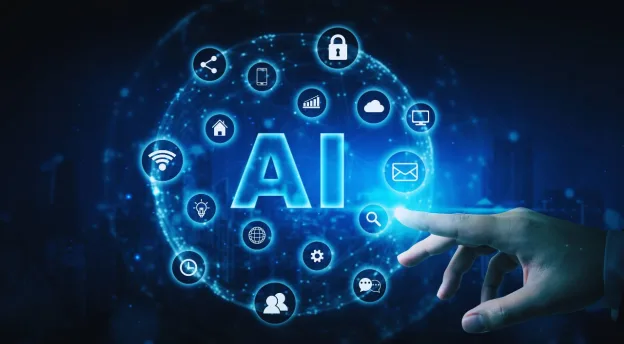AI in HR market expected to surge to $14.08 billion by 2029: Report
Events & Jobs EventsPosted by NewAdmin on 2025-02-10 08:41:03 |
Share: Facebook | Twitter | Whatsapp | Linkedin Visits: 101

The AI in HR market is poised forsignificant growth, driven by advancements in technology and an increasingfocus on employee wellbeing, recruitment strategies, and the ethical use of AI.According to a report from The Business Research Company, the market, valued at$6.05 billion in 2024, is expected to expand to $6.99 billion in 2025,reflecting a compound annual growth rate (CAGR) of 15.6%. By 2029, the marketis projected to reach $14.08 billion, with an impressive CAGR of 19.1%.
A key factor fueling this growth isthe rising demand for automation in HR operations. AI is transforming HR tasks,including candidate screening, recruitment, performance management, and dataprocessing, leading to significant improvements in efficiency. A survey by theSociety for Human Resource Management (SHRM) found that 16% of organizationshave already incorporated AI or automation into their HR functions, with 85%reporting enhanced efficiency.
Additionally, the increasing challengeof rising talent acquisition and management costs is driving AI adoption.AI-powered tools provide an effective way to manage these costs while boostingoperational efficiency, making businesses more competitive in today’sdata-driven environment.
Technological advancements are alsocontributing to the expansion of AI in HR. Tools like generative AI andpredictive analytics are being increasingly integrated into HR practices. Forinstance, Beamery Technologies Limited’s generative AI tool streamlines jobdescriptions and improves career recommendations. Additionally, talent graphs,which track employee data and organizational models, offer valuable insightsinto recruitment and talent management processes.
Emerging technologies such as virtualassistants, AI chatbots, machine learning, and people analytics are furthertransforming HR functions. These tools enable HR teams to make data-drivendecisions, offer personalized employee experiences, and refine recruitmentstrategies.
Another major factor driving AIadoption in HR is the growing focus on employee wellbeing. AI tools are helpingorganizations identify signs of burnout, promote wellness programs, and createa more balanced work environment. By leveraging AI to monitor and supportemployee health, companies can foster a more engaged and productive workforce.
As AI becomes a core component of HRoperations, there is a rising emphasis on ethical AI. Companies are seeking AIsolutions that ensure fairness, transparency, and the elimination of bias. Thisaligns with broader diversity, equity, and inclusion (DEI) objectives, ensuringthat AI-driven HR decisions are fair and inclusive.
The AI in HR market is divided intodifferent segments, including types of offerings, technologies, applications,and industries. Key applications include recruitment, talent management,performance management, payroll management, and workforce management. Asindustries such as healthcare, retail, manufacturing, banking, and IT adopt AI,they are experiencing enhanced operational efficiency and improveddecision-making.
Currently, North America leads the AIin HR market, but significant growth is expected in regions like Asia-Pacificand Europe in the coming years. Major players driving innovation in this fieldinclude IBM Corporation, Oracle Corporation, SAP SE, Workday Inc., and Infor.
As AI continues to revolutionize HRfunctions, companies will increasingly depend on these technologies to optimizeoperations, enhance employee experiences, and make data-driven decisions. Withcontinued adoption and innovation, the AI in HR market is set for substantialexpansion, transforming the future of HR operations.
Search
Categories
Recent News
- Chaos in Parliament: PM Modi's Address Postponed Amid Opposition Uproar
- Turkish Airlines Flight Makes Emergency Landing in Kolkata
- Andhra Pradesh's Petrochemical Future: A Mega Project in the Making
- Delhi Welcomes Bharat Taxi: A Driver-Owned Ride-Hailing Revolution
- Empowering India's Youth: Free Coaching for a Brighter Future
- Husband's Deadly Jealousy: A Chilling Tale of Betrayal
- Teacher's Assault Leaves Student with Lasting Damage
- BlackRock's Fink Advocates Long-Term India Investment Amid Short-Term Distractions
Popular News
- Navigating IPO Market Dynamics Amid Volatility and Regulatory Changes
- Massive Worldwide Microsoft Outage Disrupts Multiple Sectors
- Panjapur Bus Stand to Reshape TNSTC Routes
- తెలుగుదేశం పార్టీ - పేదరికాన్ని నిర్మూలించడంలో వాగ్దానం
- Universities Embrace Remote Learning Technologies Amidst Ongoing Pandemic